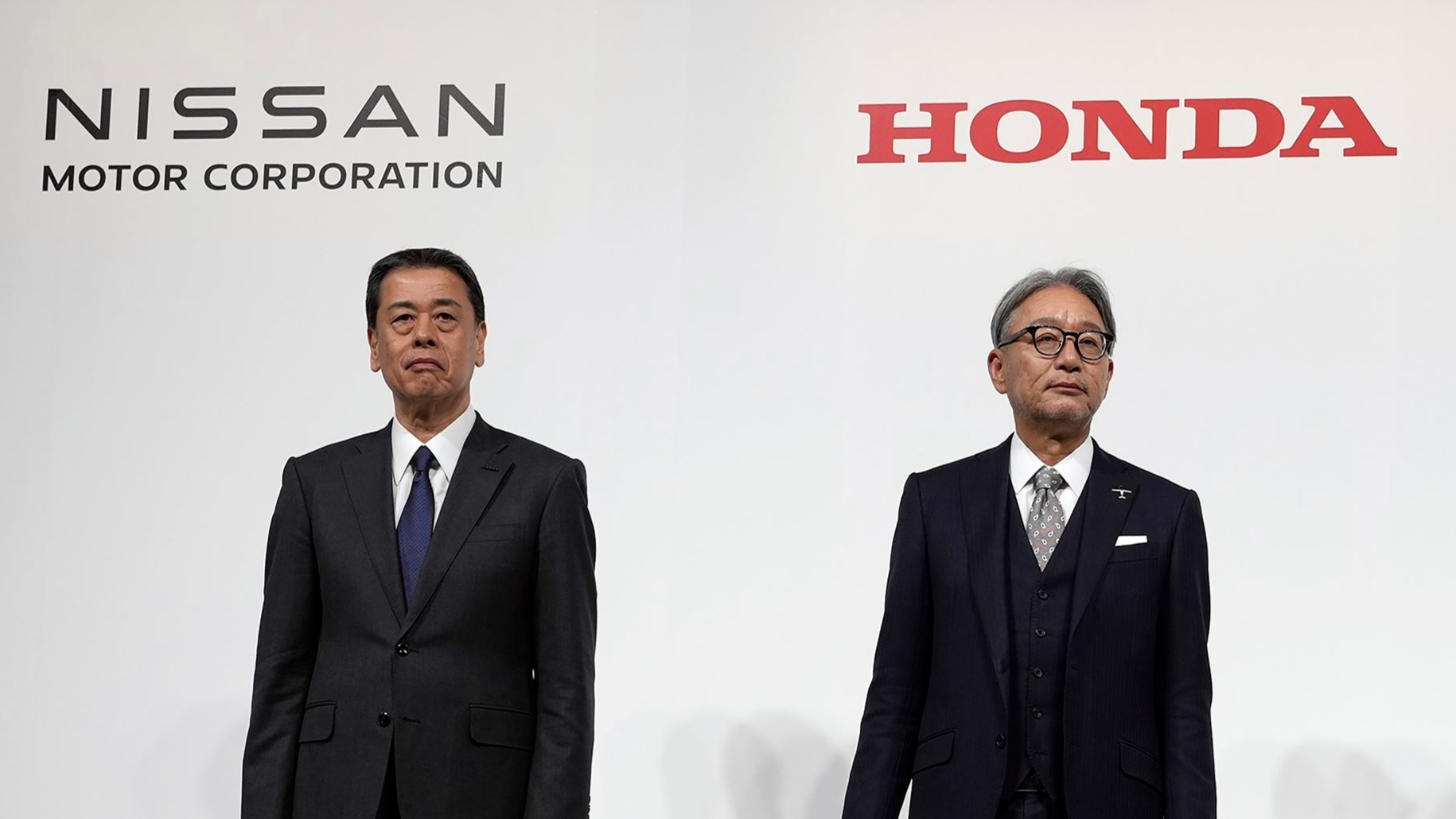
YOKOHAMA, Japan - Nissan and Honda ended talks to merge and create a $60 billion carmaker on Thursday, pitching Nissan into deeper uncertainty and underlining the difficulties faced by many auto manufacturers.
Announced in late December, the discussions between Honda, Japan's second-largest automaker, and Nissan, its third-largest, were soon complicated by growing differences, including over the balance of power in the tie-up. It was Honda's proposal that Nissan become a subsidiary that ultimately sank the deal, sources have said.
The two plan to continue to cooperate on technology and other areas.
Nissan is in many ways the most troubled of major legacy automakers, having never fully recovered from the years of crisis and management turmoil sparked by the 2018 arrest and ouster of former chairman Carlos Ghosn.
"Honda is pretty confident and has a lot in their favor, whereas Nissan is in a bad place. They don't have a dance partner right now," said Christopher Richter, Japan autos analyst at brokerage CLSA.
"They probably need to think about doing something different."

The merger would have created the world's fourth-biggest auto group by vehicle sales after Toyota, Volkswagen and Hyundai.
Honda CEO Toshihiro Mibe told a press conference that while merging the two companies would have meant "quick pain", he ultimately became more worried about the fallout if the talks dragged on without progress.
ALSO READ: Report: Nissan, Honda mull partnering on charging infrastructure
He called the failure of the discussions "disappointing" but also said Honda wanted to think about the possibility of tying up with companies other than Nissan and Mitsubishi Motors.
Mitsubishi, a junior partner in the alliance Nissan has with Renault, had been part of the merger discussions although sources had said it was unlikely to participate. It also bowed out of the talks on Thursday.
Restructuring
Japanese automakers are facing the prospect of tariffs in the United States.
Nissan is pushing ahead with a restructuring plan announced in November that includes cutting 9,000 jobs and reducing global capacity by 20 percent. It has yet to disclose details such as which locations will be affected.
Nissan is now open to working with new partners, with Foxconn seen as one candidate, sources said last week.
READ MORE: Nissan calls off Honda merger talks, Nikkei says

Foxconn Chairman Young Liu said on Wednesday that his company would consider taking a stake in Nissan but that its main aim was cooperation.
Nissan shares soared more than 60 percent and Honda's jumped around 26 percent in late December after the merger talks were first reported on Dec 17. Those gains have since been pared to 21 percent for Nissan and 11 percent for Honda.
Nissan's market capitalization is now nearly five times smaller than that of Honda, which is about 7.5 trillion yen ($48.6 billion). A decade ago, the pair were both worth around 4.6 trillion yen.



